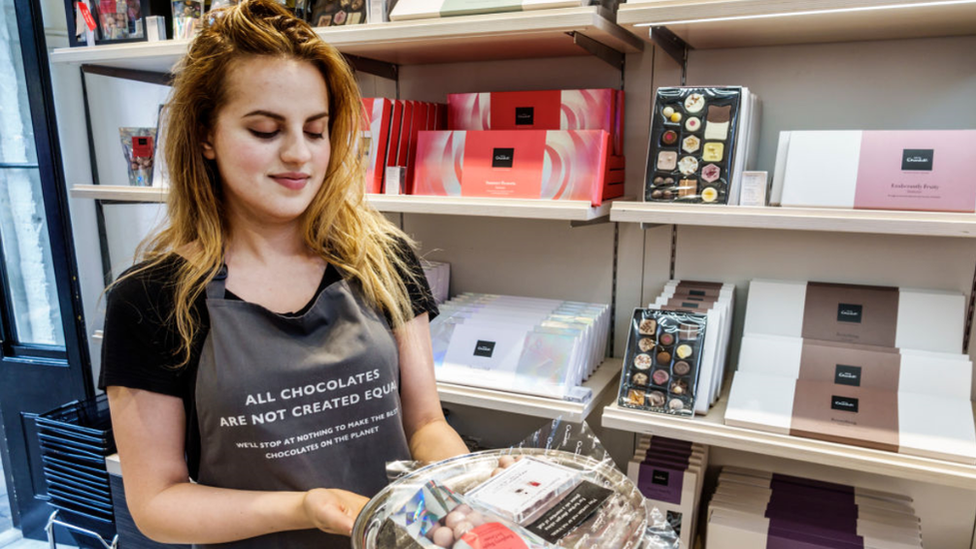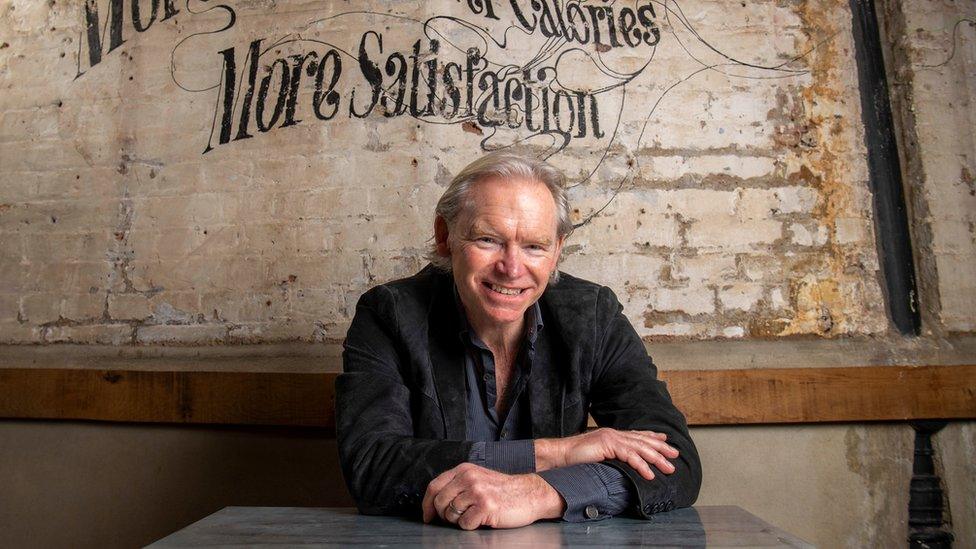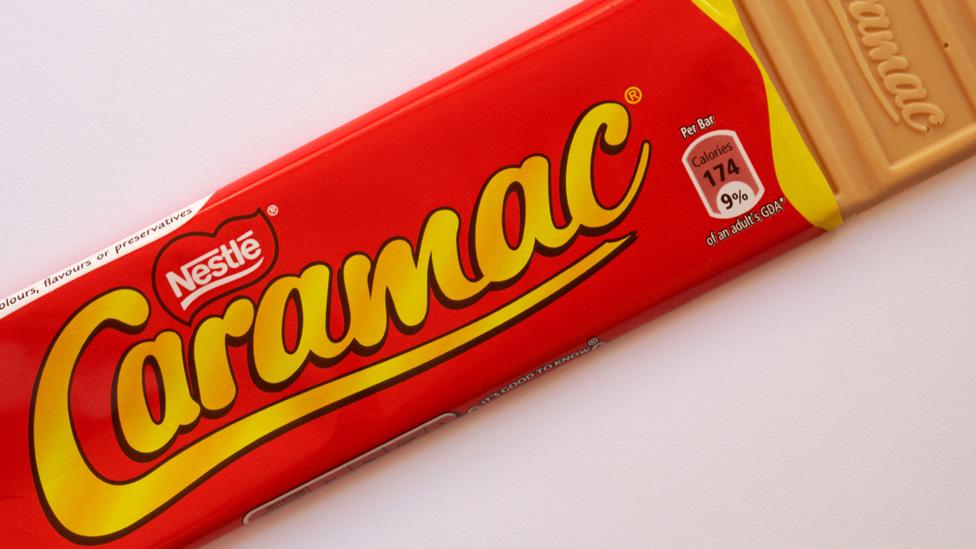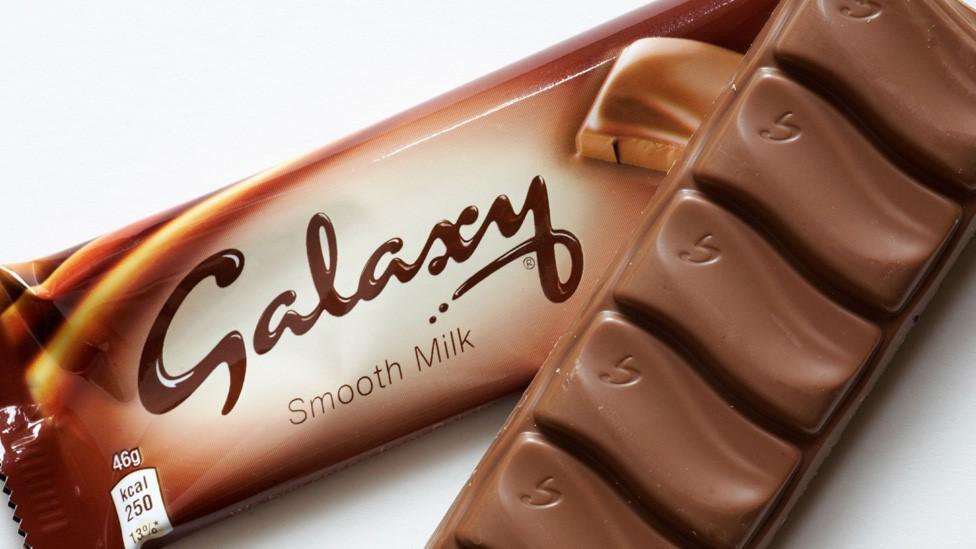Hotel Chocolat founders share £288m from Mars sale
- Published

The co-founders of Hotel Chocolat will each get £144m after agreeing to sell the British business to Mars.
The US confectionery giant will pay £534m for the firm that Angus Thirlwell and Peter Harris set up in 1993.
Hotel Chocolat said the deal would allow the brand to "grow further and faster", including overseas.
The company has had mixed success with expanding internationally and last year had to shut down its five shops in the US.
"We know our brand resonates with consumers overseas, but operational supply chain challenges have held us back," said chief executive Mr Thirlwell.
The company is mostly based in the UK with around 124 shops, but has some overseas.
Mr Thirlwell said: "By partnering with Mars, we can grow our international presence much more quickly using their skills, expertise and capabilities."
Mr Thirlwell and Mr Harris each have a 27% stake in Hotel Chocolat. Mr Thirlwell, who will stay on as chief executive, said that he would invest 80% of the £144m he will make back into the company.
He added that Mr Harris, who will retire, would also invest some of his windfall in Hotel Chocolat under Mars' ownership but did not say how much.

Angus Thirlwell will stay on as chief executive after Mars buys Hotel Chocolat
Hotel Chocolat started by selling its upmarket confectionery online and opened its first shop, in north London, in 2004.
Commenting on whether Mars intended to change Hotel Chocolat's recipes following the takeover, Andrew Clarke, global president of Mars snacking, said there were "absolutely no plans" to do that.
"We've got a real track record here of nurturing, protecting and accelerating brands and actually keeping that entrepreneurial nature at what that brand stands for," he said.
There are also no plans to start selling Mars confectionery in Hotel Chocolat shops.
'Behind the scenes'
Hotel Chocolat's overseas expansion has been costly and problematic.
In September last year, it announced the closure of its five shops in the US at a cost of £3.5m, but it continues to sell online, focusing on its Velvetiser hot chocolate-maker.
Earlier this year, it announced a joint venture in Japan with Tokyo's Eat Creator Corporation to set up 21 Hotel Chocolat shops after its first deal fell apart.
It previously had a partnership with Chris Horobin, the former boss of QVC Japan, to open stores in the country. However, that deal ended and resulted in Hotel Chocolat writing off nearly £22m.
The company now holds a 20% stake in the joint venture with Eat Creator and will receive royalties from the deal.
Commenting on its past difficulties with expanding internationally, Mr Thirlwell said: "Building a brand overseas is not a short-term fix."
He said there was "huge appeal" for Hotel Chocolat and its products overseas.
But he went on: "What we found more difficult and what was going to require more capital and more work was the operational elements of the business, so that includes manufacturing in country, distribution and the behind-the-scenes element that customers don't really see.
"This tie-up with Mars is actually all about solving that for Hotel Chocolat."
The company also owns an estate in St Lucia, which has a 140-acre farm that produces organic cacao and is where the company operates the Rabot Hotel.
In its most recent results, Hotel Chocolat disclosed impairment charges on the estate because of "continued Covid-19 disruption where visitor numbers to the island have not recovered to pre-pandemic levels".
The company also has shops in Ireland and Gibraltar.
Related topics
- Published8 November 2023

- Published26 September 2023
